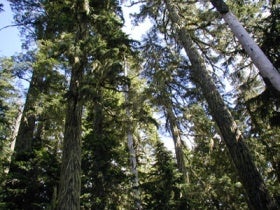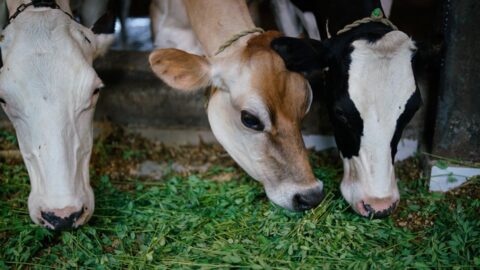Old-Growth Forests Still Taking Up Carbon

 Old-growth forests hold vast amounts of carbon from centuries of growth, and this carbon would be released into the atmosphere if the trees were cut down. That much has been known for a long time, which is why Environmental Defense Fund so strongly advocates a plan to reduce deforestation in developing countries.
Old-growth forests hold vast amounts of carbon from centuries of growth, and this carbon would be released into the atmosphere if the trees were cut down. That much has been known for a long time, which is why Environmental Defense Fund so strongly advocates a plan to reduce deforestation in developing countries.
But new research shows that old-growth forests are even more important than previously thought. According to a new study in Nature, old-growth forests aren’t just standing there maintaining the status quo. They still actively take up CO2 from the atmosphere.
The dominant trees in old-growth forests are about as big as they’re going to get. So for a long time, scientists thought that old-growth forests were carbon neutral – that the plants took up as much CO2 from the atmosphere as was released from plant and soil respiration. (To learn about respiration, see Bill’s post on agricultural offsets.)
To check this assumption, researchers compiled data from 519 studies that reported one or more components of the carbon cycle. Because data for tropical forests was scant, the study included only boreal (northern) and temperate forests.
Their analysis showed that even centuries-old forests are active carbon sinks – they take up more CO2 than they release. In fact, old-growth forests in temperate and boreal zones take up as much as 1.3 gigatons of carbon (Gt C) a year. To put that in perspective, that’s approximately 17 percent of global fossil fuel CO2 emissions in 2005.
It’s been estimated that deforestation accounts for 20 percent of current global greenhouse gas emissions. This study adds to the urgency of protecting forests. As the study’s authors put it:
The present paper shows that old-growth forests are usually carbon sinks. Because old-growth forests steadily accumulate carbon for centuries, they contain vast quantities of it. They will lose much of this carbon to the atmosphere if they are disturbed, so carbon-accounting rules for forests should give credit for leaving old-growth forest intact.
We agree! EDF’s market-based plan to give credit for leaving forests intact is called Compensated Reduction (CR), and we’re working hard to make this a reality. EDF is an active participant in the international negotiation towards a post-Kyoto agreement. We’re pleased that deforestation was a major topic at the Bali talks, and the more recent talks in Accra, Ghana, as well.
This post is by Lisa Moore, Ph.D., a scientist in the Climate and Air program at Environmental Defense Fund.











